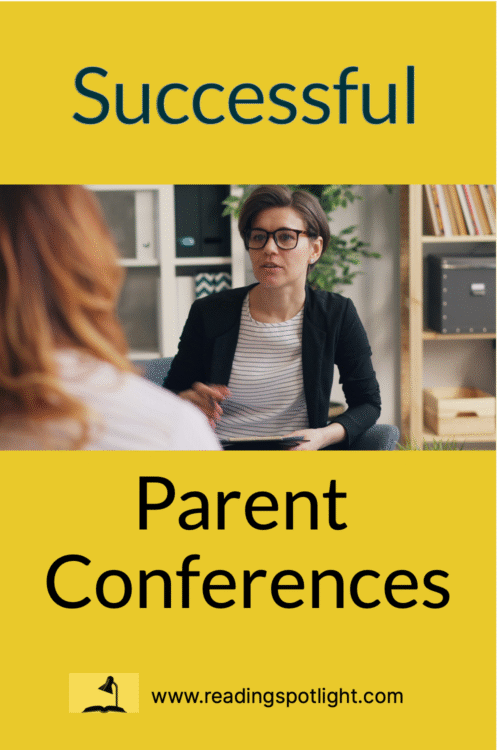In my experience with struggling readers, successful parent conferences are important because these meetings are often the only time you will ever encounter the parents of your students. As in the movie, Meet the Parents, dealing with parents can be difficult sometimes, but you will not have two hours to remedy a bad situation if it gets off on the wrong foot.
- The best way to begin is with a hopeful attitude. I always assume that we both have the same goal for the student: improvement. I always start with an honest compliment, even if only to describe a nice smile, lovely eyes or hair. S/he might be helpful, friendly, or good-natured. The praise must be honest, though.
- Then I move on to more specific and complimentary skills related to classroom attitude: The child may be creative, persistent, hard-working, and/or co-operative. S/he might participate often in class, listen well, follow directions, write neatly, check work before turning in, etc.
- Next, I focus on what has been accomplished so far. S/he has learned (specific reading skills, such as blending with short vowels, number of sight words, main ideas, inferences, etc. For a FREE Reading Profile that I developed over 30 years as a reading specialist, see
A Constructive Reading Profile
This chart evolved because I needed a way to keep reading skills of 75 students clear and focused each school year. I used it with every one of my students, adding to it as I noticed a particular strength or weakness. I found it invaluable in parent conferences. Many parents of struggling readers know more about their children’s skills than we teachers sometimes realize. Parents were impressed with my understanding of their child’s strong and weak points. This Constructive Reading Profile helped me immensely. I hope it helps you, too– that’s why it’s FREE.
-
Sometimes parents can’t help, but suggestions for who can help are also important. Counselor, tutor, grandparent, friend, principal? Remember, as always, keep that hopeful attitude that we started with.
- After explaining what has been accomplished, only then do I discuss one or two weaknesses. I try to figure out one or two important learning and/or subject deficiencies that parents can help with. We discuss together how they can implement this specific help at home. Then we figure out together how to follow-up on this help—email? phone call? At minimum, parents can almost always help their child set the conditions for home study: length and time to study and a quiet place. Modeling independent reading is also something they can do without much difficulty. For an easy guide to modeling comprehension skills, check out this previous post
You can also visit the Free TIPS section of the Reading Spotlight Website
and for other valuable information about reading instruction.
Happy meetings!
© Reading Spotlight 2025
Here are some interesting posts from my friends at TBOTEMC:



